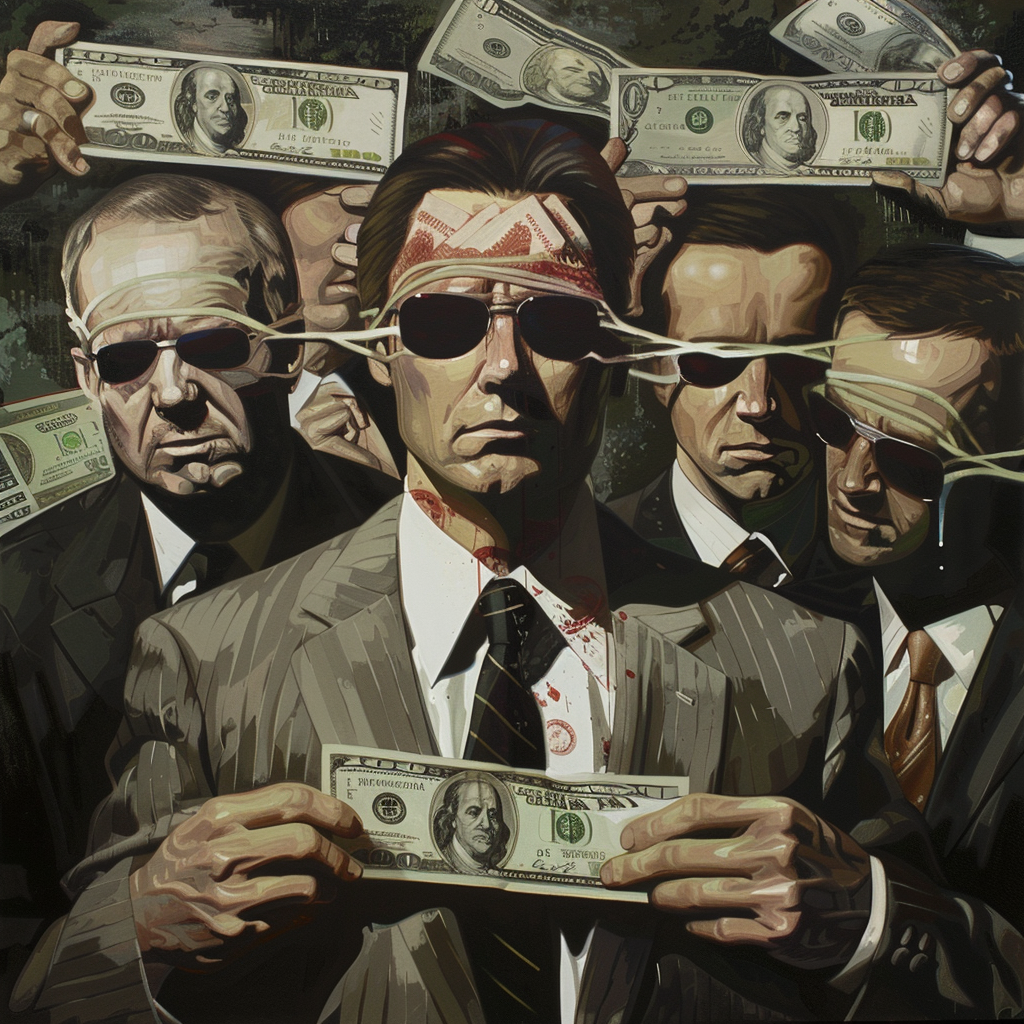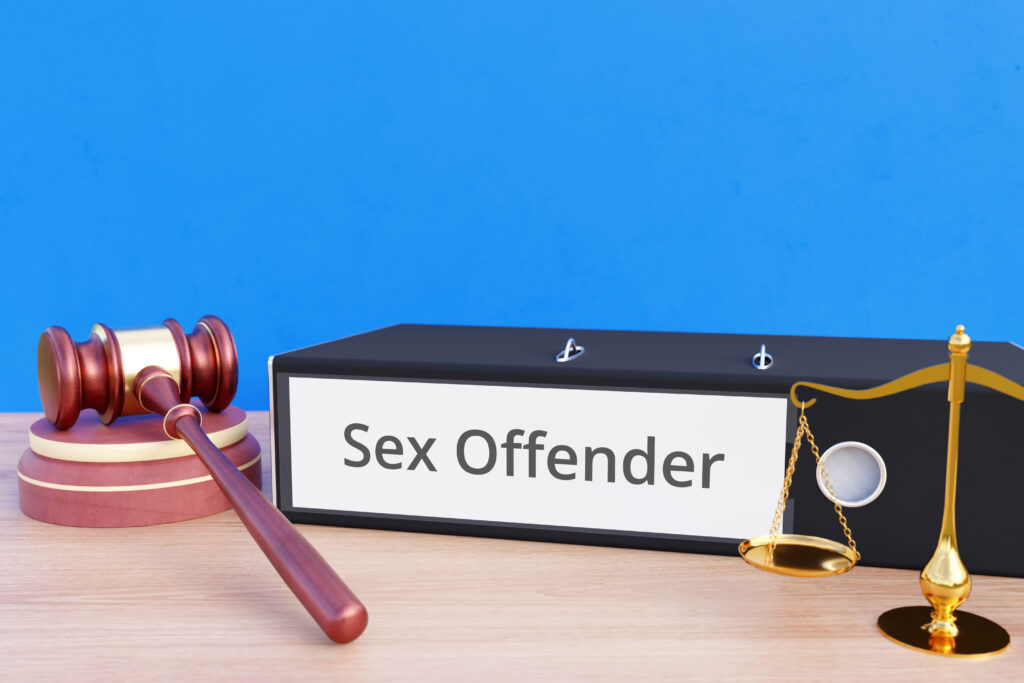Corporate Overreach and Public Policy: Unraveling the Threads of Influence and Corruption

In the complex landscape of modern governance, the thread of corporate influence has become deeply woven into the fabric of public policy, leading to a troubling pattern of corruption. This trend sees large corporations gaining power at the public’s expense through various means, including securing huge tax subsidies, inflated contracts, and discounted rights for oil drilling, costing the public hundreds of billions of dollars each year.
One of the most insidious aspects of this corporate corruption is its crippling effect on the government’s ability to protect its citizens. This failure is evident across various sectors. Environmental protections are compromised, leading to pollution of air and water. Consumer rights are undermined, allowing corporations to engage in unethical and exploitative practices. Additionally, personal privacy is infringed upon, with corporations making invasive incursions.
The pharmaceutical and medical device industries highlight this problem. Driven by profit, these corporations sometimes bypass crucial safety measures, introducing dangerous drugs and medical devices to the market, with the public unwittingly serving as the testing ground. The government’s failure to intervene effectively, often due to corporate influence, exacerbates this issue.
This systemic problem is fueled by boundless greed and a lack of regulatory restraint. Big business continually invents new methods to accumulate wealth at the public’s expense. This relentless pursuit of profit particularly affects healthcare policy.
Unlike most developed countries, the U.S. operates under a profit-driven healthcare system, influenced by the pharmaceutical and insurance sectors, prioritizing profit over accessibility. Consequently, healthcare is a privilege for those who can afford it, not a right for all.
Expanding upon this issue, it’s crucial to understand that Corporate America has historically viewed the government not as an adversary but as a collaborator in profit maximization. This perspective has led to a symbiotic relationship between big business and government, where policies are often shaped to benefit corporate interests. The idea of government as a partner in profit has entrenched a system where public resources and policy decisions are leveraged to boost corporate bottom lines, often at the expense of public interest.
This partnership manifests in various forms, such as tax breaks for large corporations, deregulation of industries, and the privatization of services traditionally provided by the government. These practices not only divert public funds into private pockets but also erode the quality and accessibility of essential services, widening the gap between the wealthy and the less affluent.
The corporate influence on politics is another dimension of this problem. Through substantial campaign contributions and lobbying efforts, corporations exert significant influence on political decisions and policies. This influence often leads to legislation that favors corporate interests, even when such policies may be detrimental to the wider public or the environment.
The issue of corporate tax evasion stands as a stark illustration of how corporations undermine the public good. This phenomenon, where corporations employ various strategies to avoid paying their fair share of taxes, has significant repercussions on the economy and society. The data and statistics surrounding this issue paint a troubling picture of the scale and impact of corporate tax evasion.
A report by the Institute on Taxation and Economic Policy (ITEP) revealed that many Fortune 500 companies pay far less in taxes than the statutory corporate tax rate. In fact, between 2008 and 2015, 258 Fortune 500 companies collectively paid an effective federal income tax rate of just 21.2%, significantly lower than the then-statutory rate of 35%. Furthermore, 18 of these companies, including giants like General Electric, International Paper, and Priceline.com, paid no federal income tax over this eight-year period.
The Tax Cuts and Jobs Act of 2017, which lowered the corporate tax rate from 35% to 21%, was touted as a way to discourage tax avoidance and bring corporate profits back to the U.S. However, its impact has been questionable. According to the Joint Committee on Taxation, the amount of offshore cash held by U.S. multinational corporations stood at approximately $1 trillion in 2017. Post-tax reform, this figure has not seen the expected significant reduction, indicating ongoing tax avoidance practices.
Offshore tax havens play a crucial role in this scenario. A study by the U.S. Public Interest Research Group Education Fund and the Institute on Taxation and Economic Policy found that at least 366 of the Fortune 500 companies operated subsidiaries in tax haven countries as of 2017. These havens enable corporations to shift profits and avoid paying U.S. taxes. The same study estimated that this offshoring of profits costs the U.S. approximately $135 billion in lost tax revenue annually.
The impact of corporate tax evasion extends beyond lost revenue. It exacerbates income inequality, as the burden of tax revenue falls disproportionately on individuals and small businesses. This loss of revenue also means less funding for public services like education, healthcare, and infrastructure, further affecting the quality of life of ordinary citizens.
The narrative of corporate misconduct with minimal accountability is a recurring theme in the modern economic landscape, creating a two-tiered justice system where corporations often escape severe consequences for their actions. This pattern not only undermines legal and ethical standards but also fosters a sense of injustice among the public.
One glaring example is the 2008 financial crisis. Major financial institutions played a significant role in this crisis due to reckless practices in mortgage lending and the sale of complex financial products. Despite the widespread damage caused, including a global economic downturn and millions of people losing their homes and jobs, very few executives from major financial institutions faced criminal charges. Instead, the corporations were often settled with regulatory bodies for fractions of their annual revenues. For instance, in 2014, Bank of America agreed to a $16.65 billion settlement with the U.S. Department of Justice for its role in the crisis, a sum that, while large, pales in comparison to the scale of the damage caused and the bank’s overall revenue.
In the realm of environmental law, similar patterns are observable. A notable case is the Deepwater Horizon oil spill in 2010, one of the worst environmental disasters in U.S. history. BP, the company responsible, was fined $20.8 billion, the largest environmental fine in U.S. history. However, considering the extent of the environmental damage, the long-term ecological impact, and BP’s size (with annual revenues exceeding $300 billion at the time), the fine, while substantial, did not proportionately penalize the company. Furthermore, no BP executives faced criminal charges for their roles in the disaster.
Pharmaceutical companies provide another example. Purdue Pharma, the maker of OxyContin, pleaded guilty to criminal charges related to the opioid epidemic, agreeing to pay $8.3 billion in penalties in 2020. Yet, this fine was criticized as insufficient given the scale of the opioid crisis, which has caused over 450,000 deaths in the United States since 1999. The Sackler family, who owned Purdue Pharma, faced no criminal charges and were allowed to maintain a significant portion of their wealth.
The statistics on corporate crime further illustrate this disparity. A study by the Corporate Crime Reporter found that of the top 100 corporate criminals in the U.S., many were repeat offenders. Yet, these corporations rarely faced existential threats due to legal penalties. The fines, although sometimes amounting to billions of dollars, often represented a small percentage of their annual profits.
This pattern of corporate wrongdoing with limited accountability contributes to a two-tiered justice system. While individuals often face harsh penalties for relatively minor offenses, corporations, particularly large ones, frequently negotiate settlements that allow them to continue their operations with minimal disruption. This situation not only undermines public trust in the justice system but also raises questions about the efficacy of current legal frameworks in holding corporations accountable for their actions.
The frequent breaking of laws by corporations and their subsequent escape from serious accountability highlights a significant flaw in our justice system. This disparity not only allows corporate misconduct to continue but also fosters a sense of inequality and injustice. Addressing this issue requires a reevaluation of how corporate crimes are prosecuted and penalized, ensuring that justice is served proportionately and effectively.
In examining the issue of corporate misconduct, it’s essential to recognize that many actions by corporations, which might be perceived as ‘crimes’ by the public, often fall into a legal gray area. This situation arises due to a combination of complex legal frameworks, aggressive lobbying, and regulatory gaps, allowing corporations to engage in ethically questionable activities without technically breaking the law.
A significant factor in this context is the influence of corporate lobbying on legislation and regulation. Corporations spend billions of dollars annually lobbying governments. This expenditure is not without return; it often leads to the creation or modification of laws and regulations in ways that favor corporate interests. For example, tax laws are notoriously complex and filled with loopholes, many of which were created or preserved due to corporate lobbying. These loopholes enable companies to legally avoid paying substantial amounts of taxes, an action that, while not illegal, may be considered unethical or harmful to the public interest.
Another aspect is the deregulation trend in various industries, which has been largely driven by corporate influence. By advocating for less regulatory oversight, corporations can engage in practices that maximize their profits while staying within the bounds of the law. The financial sector provides a clear example. Before the 2008 financial crisis, the deregulation of financial markets allowed banks and other financial institutions to engage in high-risk practices that were legal at the time but had catastrophic economic consequences.
In the pharmaceutical industry, companies often exert influence to expedite the approval of drugs or to extend the patent life of their products, strategies that are legal but can have ethical implications, such as limiting access to affordable medication. The opioid crisis, for instance, was fueled in part by aggressive marketing and distribution practices that, at the time, were not illegal but had devastating public health consequences.
Environmental policy is another area where corporate influence often results in legal frameworks that allow environmentally harmful practices. While these actions may comply with the letter of the law, they can have significant negative impacts on the environment and public health.
It’s crucial to recognize that while these actions might not constitute crimes in a legal sense, they can still have profound negative impacts on society and the economy. The distinction between legality and ethics becomes blurred, raising questions about the role of corporations in society and the adequacy of existing legal and regulatory frameworks in safeguarding public interest.
The corporate corruption of our government represents a significant threat to democratic principles and public welfare. It creates an environment where public resources are siphoned for private gain, and where policy decisions favor a select few over the majority. Addressing this corruption requires a concerted effort to reform policies and ensure that the government serves its true purpose – the protection and well-being of all its citizens. Only through such reforms can we hope to restore the balance between corporate power and public good.
Recommend0 recommendationsPublished in Business, Economy, Opinion




Responses